Nutritional Counseling's Impact on Physical Health and Healing
November 5, 2025
11 min

Understanding Nutritional Counseling and Its Benefits
What is Nutritional Counseling?
Nutritional counseling is a personalized process where healthcare professionals trained in nutrition assist individuals in making healthier dietary choices. This service often involves creating tailored nutrition plans that guide meal planning and portion control to support overall well-being.
Who Provides Nutritional Counseling?
Registered dietitians predominantly deliver nutritional counseling, with licensed nutritionists also providing expertise. These professionals focus on understanding each individual's unique health status and nutritional needs.
Initial Assessment and Personalized Plans
The counseling journey begins with a detailed evaluation of a person’s health history, dietary habits, physical activity, and specific goals. This assessment allows for developing customized nutrition plans that are practical and suited to individual lifestyles.
Education and Mindful Eating
Clients learn about how different foods impact their health, including reading labels and recognizing natural hunger cues. The counseling process emphasizes mindful eating techniques and understanding essential nutrients, which empowers individuals to make conscious, informed food choices.
Managing Chronic Diseases Through Nutrition
Nutritional counseling is particularly beneficial for those managing chronic conditions such as diabetes, high blood pressure, heart disease, high cholesterol, and kidney disease. By addressing dietary factors, it helps improve health outcomes and supports sustainable lifestyle changes.
Nutritional Counseling: A Foundation for Physical Healing and Disease Management

What is Personalized Nutrition Planning?
Nutritional counseling begins with a detailed assessment of an individual's health history, dietary habits, physical activity, and specific goals. From this, healthcare professionals such as registered dietitians and licensed nutritionists develop personalized nutrition plans tailored to each person's unique needs and health conditions. These plans consider food allergies, lifestyle factors, and the nutrient requirements essential for improving overall health and supporting musculoskeletal function.
Which Disease Conditions Benefit from Nutritional Counseling?
Many chronic illnesses gain substantial benefits from targeted nutritional counseling benefits. Conditions like diabetes, high blood pressure, heart disease, high cholesterol, kidney disease, and obesity can all be better managed through dietary changes. Furthermore, individuals at risk of osteoporosis, those managing digestive or eating disorders, and people seeking weight management support also find value in nutritional guidance.
How Do Meal Planning, Portion Control, and Mindful Eating Play a Role?
Nutritional counseling emphasizes practical strategies such as meal planning and portion control to help individuals maintain balanced diets. Clients learn to read food labels, recognize hunger cues, and engage in mindful eating practices that support healthier choices. These techniques promote sustainable habits that reduce inflammation and optimize musculoskeletal health by encouraging nutrient-dense food consumption, such as green leafy vegetables rich in vitamin K1 and nitrate for bone and muscle support (Nutritional strategies for musculoskeletal health).
Why is Ongoing Monitoring and Adjustments Important?
Effective nutritional counseling includes continuous follow-up to monitor progress and make necessary adjustments. Personalized advice evolves as patients' health conditions change or improve. Such ongoing support ensures that nutrition plans remain relevant to an individual's lifestyle and optimize outcomes, particularly for managing chronic diseases or improving recovery from musculoskeletal conditions (Nutritional counseling for lifestyle modification).
How is Nutritional Counseling Integrated with Medical Nutrition Therapy?
Nutritional counseling often complements medical nutrition therapy (MNT), especially in treating chronic illnesses like kidney disease, heart failure, and diabetes. MNT involves thorough assessment and interdisciplinary collaboration primarily led by dietitians to offer targeted treatment plans. Combining these approaches provides a comprehensive strategy addressing both dietary habits and clinical management, enhancing healing and disease control.
What Services Does Back in Action Bodyworks Offer?
Back in Action Bodyworks in Torrance, California, offers a holistic range of musculoskeletal health services, including chiropractic care focused on spinal corrective techniques. They also provide physical therapy, massage therapy, cupping, stretch therapy, and acupuncture aimed at promoting healing, improving function, and relieving pain. Their integrative approach includes personalized nutritional guidance and lifestyle counseling to support overall wellness and complement chiropractic treatments (Back in Action Bodyworks chiropractic practice).
Nutritional Counseling’s Role in Optimizing Musculoskeletal Health and Healing
What are the essential nutrients for bones and muscles?
Maintaining strong bones and healthy muscles requires key nutrients, including calcium, vitamin D, protein, vitamin K1, and dietary nitrate. Calcium is fundamental for bone density, while vitamin D enhances calcium absorption. Protein supports muscle repair and growth, crucial for maintaining muscle function. Vitamin K1, found in green leafy vegetables, aids bone health by activating osteocalcin, a bone-building protein. Dietary nitrate, supplied through vegetables, improves muscle strength and physical function, helping to prevent falls especially in older adults. For more on the importance of nutrition for musculoskeletal health and nutritional strategies for musculoskeletal health, see these resources.
Why is a balanced diet including vegetables and proteins important?
A balanced diet rich in vegetables—especially green leafy and cruciferous types—and high-quality protein sources supports musculoskeletal health comprehensively. Vegetables provide vitamins and minerals essential for bone and muscle function, while proteins from lean meats, fish, eggs, and legumes aid in muscle repair. Such nutritional balance promotes natural healing, mobility, and resilience against injuries. Learn more about how nutrition supports musculoskeletal health and nutritional counseling for musculoskeletal health.
How do vitamin K1, nitrate, calcium, and vitamin D impact musculoskeletal function?
Vitamin K1 assists in bone mineralization and reduces fracture risk. Nitrate intake from vegetables enhances muscle oxygen efficiency, improving strength and reducing fall risk. Calcium and vitamin D together maintain bone density and muscle function; deficiency in these can increase fractures and weaken muscles. Hence, integrating these nutrients supports both bone integrity and muscle performance. These insights are detailed in studies on nutritional strategies for musculoskeletal health.
What role do anti-inflammatory foods and hydration play?
Incorporating anti-inflammatory foods and musculoskeletal health like omega-3 rich fish, flaxseeds, berries, and cruciferous vegetables helps reduce joint and muscle inflammation that can cause pain and stiffness. Adequate hydration, from water and water-rich foods, lubricates joints and supports overall musculoskeletal function, contributing to decreased discomfort and better mobility. For a comprehensive view of nutrition’s role in musculoskeletal health, visit Back in Action Bodyworks chiropractic practice.
How does diet quality influence fracture prevention and musculoskeletal health?
Higher diet quality scores and dietary patterns such as the Mediterranean diet correlate with lower fracture risk and improved musculoskeletal outcomes. These diets emphasize a variety of nutrient-dense foods that support bone strength and muscle function, reducing the likelihood of falls and fractures. For additional details, see nutritional counseling benefits on musculoskeletal health.
In summary, nutritional counseling helps individuals adopt tailored eating plans emphasizing these vital nutrients and dietary habits to optimize musculoskeletal health and natural healing. Such holistic dietary strategies complement chiropractic and physical therapies, advancing overall musculoskeletal function and patient wellness. Additional holistic approaches can be explored in combining traditional and nontraditional nutrition approaches and nutritional counseling services tailored to specific health needs.
Holistic Approaches Combining Nutrition with Chiropractic and Physical Therapies

How Does Integrating Nutrition with Chiropractic Care Benefit Patients?
Integrating nutritional counseling with chiropractic care creates a comprehensive approach to musculoskeletal health. While chiropractic adjustments focus on improving spinal alignment, mobility, and function, nutrition supports the body's natural healing from within. Personalized nutrition plans enhance recovery by providing essential nutrients such as calcium, vitamin D, and protein, which are crucial for bone strength and muscle repair. This integration addresses not only structural issues but also underlying nutritional deficiencies that may impede healing. For more on the importance of nutrition to musculoskeletal health, see this resource.
What Nontraditional Techniques Enhance Nutrition and Wellness?
Nontraditional methods such as mindfulness, meditation, guided imagery, and biofeedback complement traditional nutritional counseling and chiropractic treatments. These mind-body approaches foster greater self-awareness and stress reduction, which can improve adherence to dietary goals and overall well-being. Mindfulness helps patients recognize hunger cues and make informed food choices, while meditation supports emotional balance, crucial for managing chronic pain or inflammatory conditions. Learn more about combining traditional and nontraditional nutrition approaches.
Which Supplements Support Musculoskeletal Health?
Supplementation can further optimize musculoskeletal function and reduce inflammation. Fish oil rich in omega-3 fatty acids, turmeric with its anti-inflammatory properties, collagen for joint repair, and glucosamine to support cartilage health are commonly recommended. These supplements work synergistically with a nutrient-dense diet to promote flexibility, reduce pain, and enhance recovery alongside chiropractic care. Additional insights on holistic support for musculoskeletal health can be found here.
How Do Physical Therapies Promote Muscle Relaxation and Inflammation Control?
Physical therapies such as acupuncture, massage therapy, cupping, and stretch therapy are valuable for muscle relaxation and controlling inflammation. Acupuncture stimulates blood flow and modulates inflammatory responses, while massage improves circulation and releases muscular tension. Cupping assists in detoxification and pain relief. Stretch therapy enhances range of motion, all contributing to faster healing and improved function when combined with chiropractic adjustments. For local options, see Back On Point Wellness Chiropractor and Dr. Marie Jo Kane chiropractic services.
What Role Does Nutritional Counseling Play in Enhancing Healing?
Nutritional counseling is a complementary service that guides patients through making sustainable dietary changes tailored to their health needs. It supports musculoskeletal healing by addressing nutrient gaps, controlling inflammation, and managing chronic conditions like diabetes or obesity that affect overall function. Counseling often involves education on reading food labels, mindful eating, and meal preparation strategies that empower patients to take control of their health journey. Discover the benefits of nutritional counseling and how it integrates with chronic disease management here.
Who Leads the Practice at Back in Action Bodyworks?
The practice at Back in Action Bodyworks is led by Dr. Kim, a highly experienced chiropractor dedicated to holistic musculoskeletal health. With years of training and a deep commitment to patient well-being, Dr. Kim specializes in tailored chiropractic treatments that address a wide range of conditions. Under their leadership, the practice offers comprehensive wellness services that emphasize natural healing and prevention. Their expertise and personalized approach have helped many patients in Torrance improve their health and quality of life. Overall, Dr. Kim's leadership ensures that Back in Action Bodyworks remains a trusted destination for holistic health care. Learn more about their chiropractic practice and services and Back in Action Bodyworks.
Supporting Lifestyle Modification and Long-Term Health Through Nutritional Counseling

How Does Patient Participation Enhance Nutritional Counseling?
Nutritional counseling fosters a collaborative relationship where patients actively engage in understanding and managing their dietary needs and health goals. This patient participation enables personalized nutrition plans that align with individual lifestyles, preferences, and medical conditions, leading to greater commitment and adherence to healthier habits. Such tailored nutritional counseling benefits also improve engagement and reduce dropout rates.
What Role Does Cognitive Behavioral Therapy Play in Nutrition Counseling?
Cognitive behavioral therapy (CBT) integrated within nutritional counseling helps address behavioral patterns linked to eating. By focusing on thought and behavior modifications, CBT reduces dropout rates and improves long-term engagement, especially among obese adults, making lifestyle changes more sustainable.
What Positive Outcomes Arise from Nutritional Counseling in Weight Management and Chronic Disease?
Nutritional counseling has demonstrated effectiveness in improving weight management, enhancing dietary habits, and managing chronic diseases such as diabetes, hypertension, and heart disease. It supports metabolic health by facilitating changes in body composition, blood glucose control, and cardiovascular risk reduction. This aligns with medical nutrition therapy (MNT), which is used to manage various chronic conditions and optimize health outcomes.
How Do Educational Tools and Digital Support Enhance Nutritional Counseling?
Innovative educational tools, such as questionnaires assessing nutritional knowledge, empower patients to better understand their diet. Digital platforms, including telemedicine and mobile apps, offer flexible access and ongoing support. For example, WeChat-based programs have improved stress adaptation and insulin resistance in pregnant women with gestational diabetes. Additionally, online nutritional counseling with Amwell and other telemedicine services expand access and convenience.
Why Is Ongoing Engagement Important for Sustainable Habit Change?
Sustained lifestyle modification requires continuous monitoring, feedback, and plan adjustments. Nutritional counseling emphasizes ongoing engagement through regular sessions, follow-up assessments, and tailored strategies, ensuring that healthy behavior changes are maintained over the long term, contributing to lasting health benefits. This ongoing process is critical for effectively managing various health conditions and supports improved musculoskeletal health when combined with other multidisciplinary care approaches such as chiropractic and physiotherapy (multidisciplinary approach in musculoskeletal health).
Accessing Nutritional Counseling Services and Their Role in Comprehensive Care

How Can Nutritional Counseling Be Accessed?
Nutritional counseling services are widely available through various platforms. Patients can attend in-person appointments with registered dietitians and licensed nutritionists, or utilize online telemedicine platforms, such as Amwell telemedicine nutritional counseling, particularly accessible to members of certain health plans in California. This accessibility facilitates ongoing support regardless of location.
What Insurance Coverage Considerations Should Patients Be Aware Of?
Insurance coverage for nutritional counseling often requires a referral from a healthcare provider and prior authorization to ensure medical necessity. For example, coverage may focus on managing weight-related illnesses, chronic conditions, or complex eating disorders. Some health plans allow for multiple extended visits, particularly for conditions like eating disorders or significant malnutrition.
Why Is a Referral Important for Nutritional Counseling?
A referral guarantees that nutritional counseling is medically appropriate and integrated within the patient’s broader care. Doctors assess the patient’s needs, linking them to nutrition experts to address specific health goals, enhancing treatment effectiveness. This is a core aspect of the collaborative nutritional counseling approaches.
How Does Nutritional Counseling Provide Extended Support for Complex Conditions?
Patients with eating disorders or significant weight loss can access prolonged counseling services—up to 18 visits in some cases—highlighting ongoing dietary guidance and monitoring as critical for recovery and stabilization, as outlined in Nutritional Counseling Referral and Authorization.
What Is the Importance of Multidisciplinary Care in Nutritional Counseling?
Nutritional counseling functions best when integrated within a multidisciplinary healthcare team. Collaboration among chiropractors, dietitians, physical therapists, and physicians ensures personalized plans address physical, emotional, and lifestyle factors, promoting comprehensive musculoskeletal health and chronic disease management. This approach incorporates stress-reduction techniques and emphasizes holistic nutrition therapy including emotional and spiritual factors.
Nutritional Counseling: A Vital Component in Physical Health and Healing
Benefits for Musculoskeletal and Chronic Health
Nutritional counseling plays a crucial role in supporting musculoskeletal health by promoting nutrient-rich diets that strengthen bones and muscles and reduce inflammation. It also aids chronic disease management by tailoring dietary plans that address conditions like diabetes, high blood pressure, and kidney disease.
Personalized and Holistic Care
An individualized approach ensures nutrition plans are customized to each person's health history, dietary habits, and goals. Holistic strategies include mind-body techniques such as mindfulness, meditation, and stress management, enhancing overall wellness and adherence.
Integration with Other Therapies
Combining nutritional counseling with chiropractic care, physical therapy, acupuncture, and supplement guidance can optimize healing and improve physical function. This integrated method supports pain relief, recovery, and long-term health.
Professional Guidance Recommendation
Seeking licensed nutritionists or registered dietitians ensures expert evaluation and management. Professionals can develop personalized plans that complement other treatments, helping patients achieve sustainable health improvements and injury prevention.
Recent articles

10 Corrective Exercises to Maintain a Healthy Spine and Relieve Pain

Exercise Strategies for Long-Term Pain Management

The Importance of Treating the Root Cause of Pain

Nutritional Support Strategies for Whole-Body Wellness

7 Essential Questions to Ask When Choosing Your Chiropractor

Identifying and Addressing Root Causes of Pain

Maintaining a Healthy Spine with Lifestyle Adjustments

Sciatica Symptom Relief via Spinal Decompression

8 Reasons Why Addressing the Root Cause of Pain Is Crucial

Chiropractic Care’s Impact on Back Pain Recovery

Combining Physiotherapy with Chiropractic Care for Better Results

Inspiring Recovery: Chiropractic Patient Testimonials

Nutritional Counseling Tips for Optimal Wellness

Why Addressing the Root Cause of Pain is Crucial

Back Pain and Chiropractic Care: A Winning Combination

Chiropractic Care Benefits You Might Not Know

Exploring Holistic and Non-Surgical Treatments for Pain

Spinal Health: Lifestyle Tips for Everyday Wellness
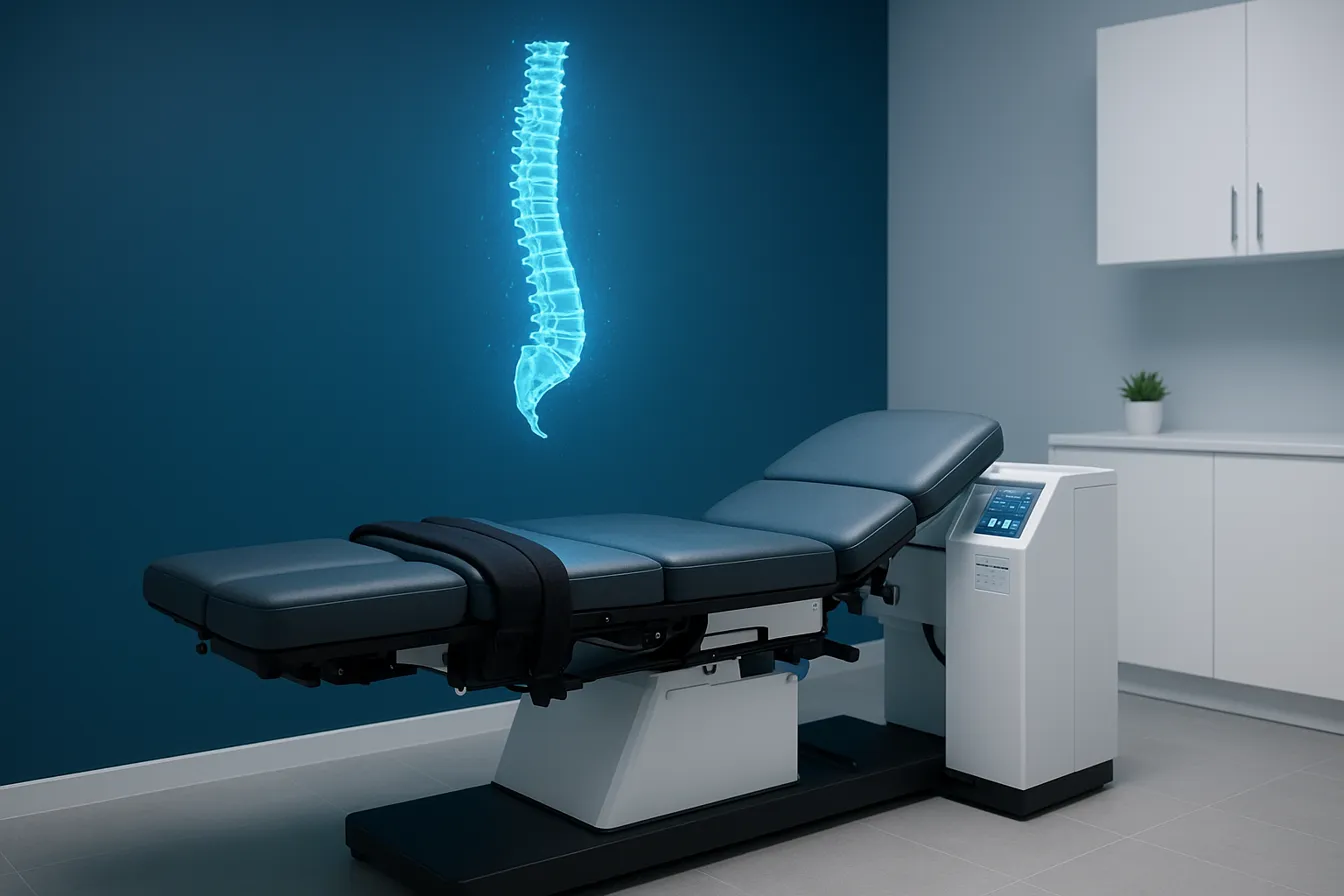
Spinal Decompression Therapy: Benefits and Applications
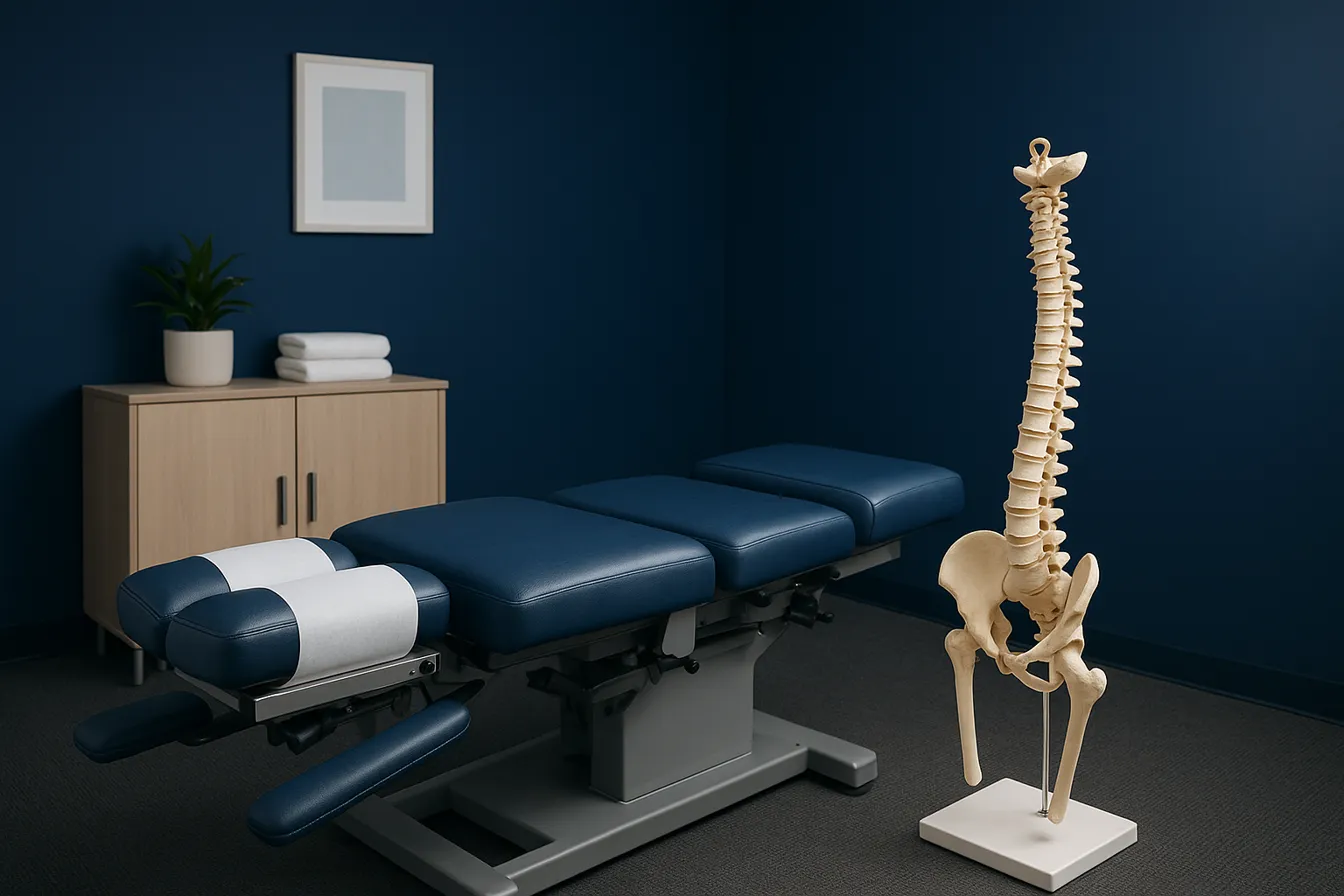
Holistic and Non-Invasive Spine Care Options
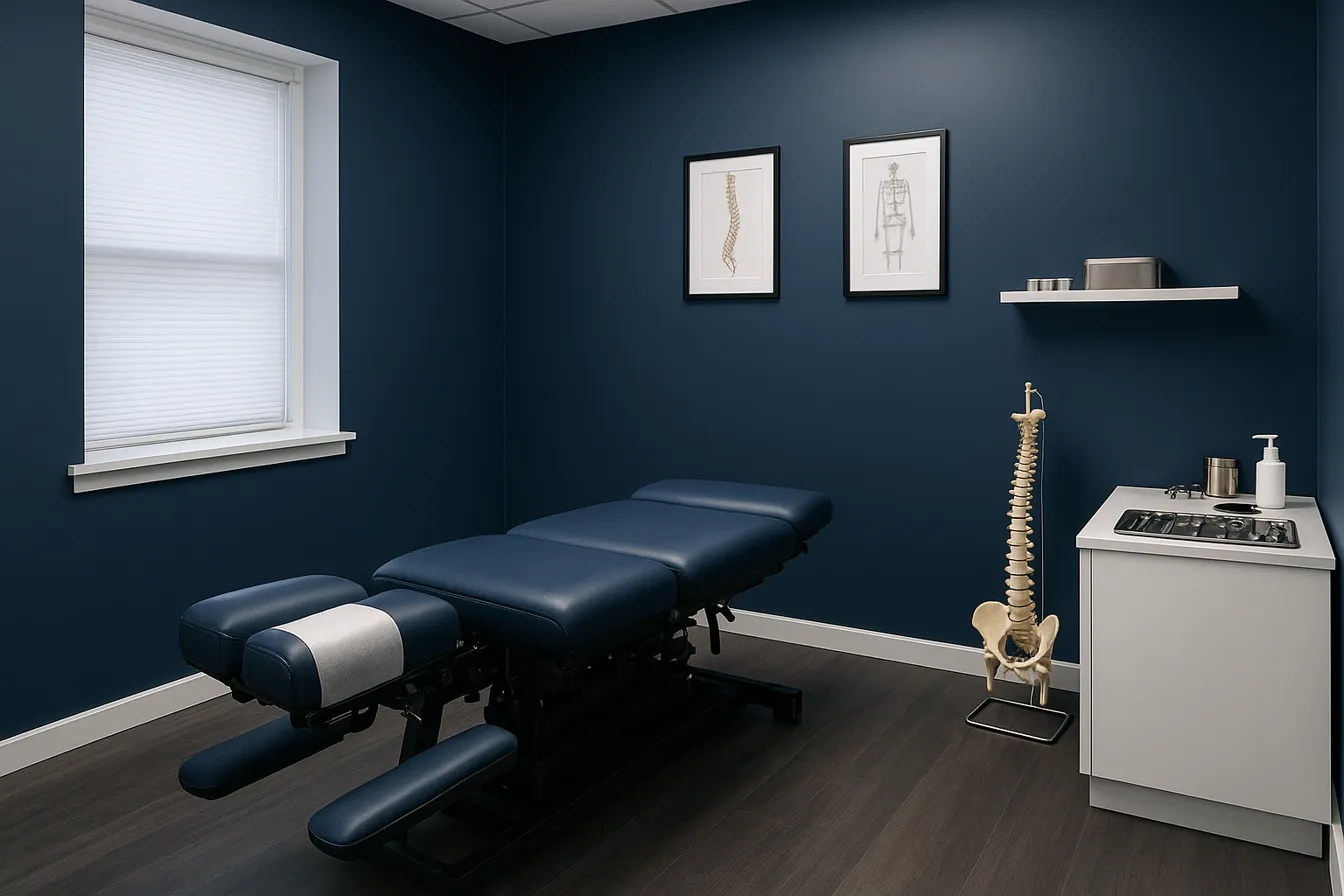
Everyday Lifestyle Advice to Keep Your Spine Healthy

The Significance of Treating Root Causes in Pain Therapy

Best Corrective Exercises for Sustainable Pain Management

Addressing Underlying Causes of Pain for Long-Term Relief

6 Key Benefits of Spinal Decompression Therapy for Sciatica Relief

How Nutritional Counseling Supports Spine Health and Recovery

The Role of Physiotherapy in Supporting Chiropractic Treatments

What Happens During Your First Visit to a Chiropractor?

Holistic and Non-Invasive Treatments: Alternatives to Back Surgery
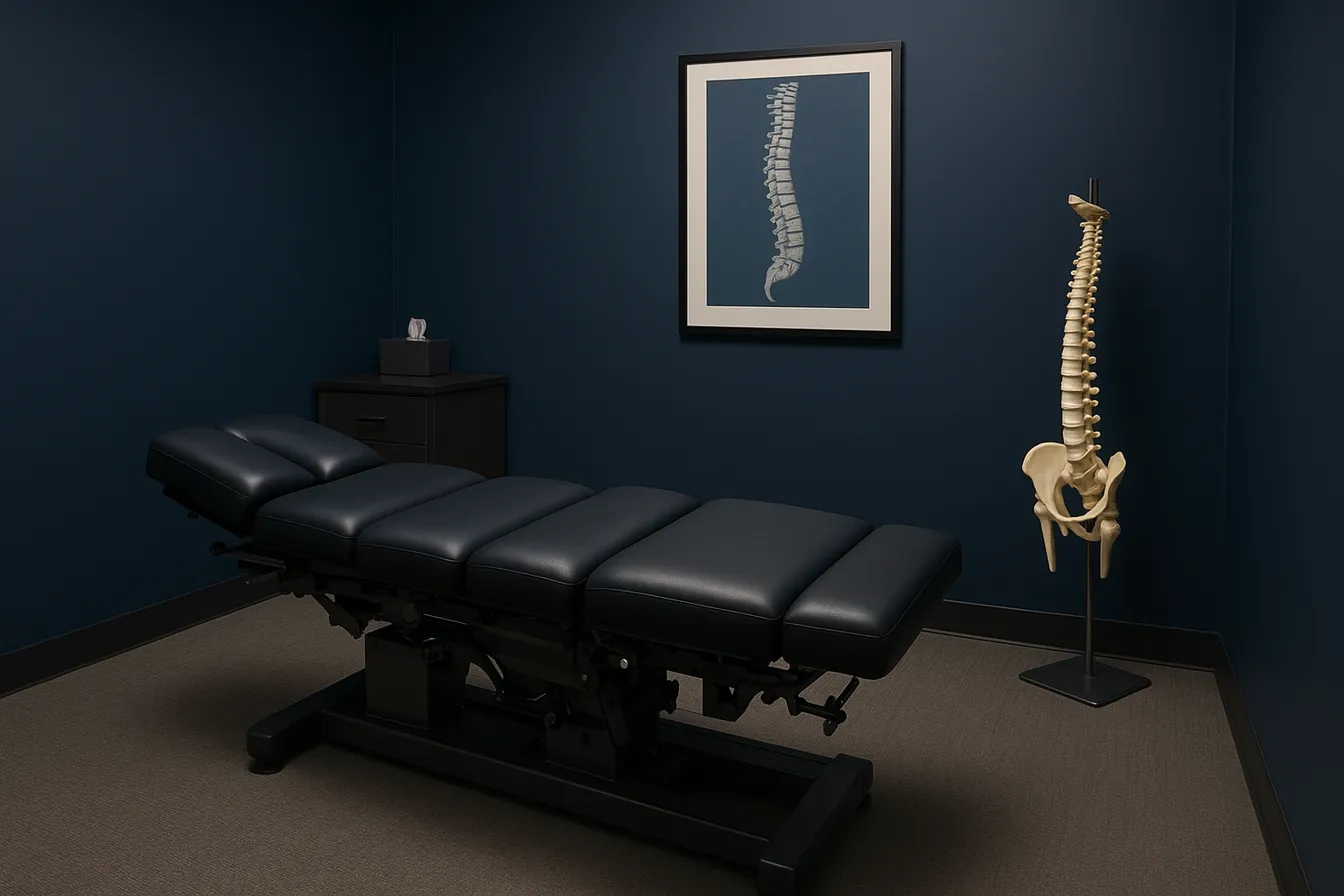
How Spinal Decompression Therapy Relieves Sciatic Nerve Pain
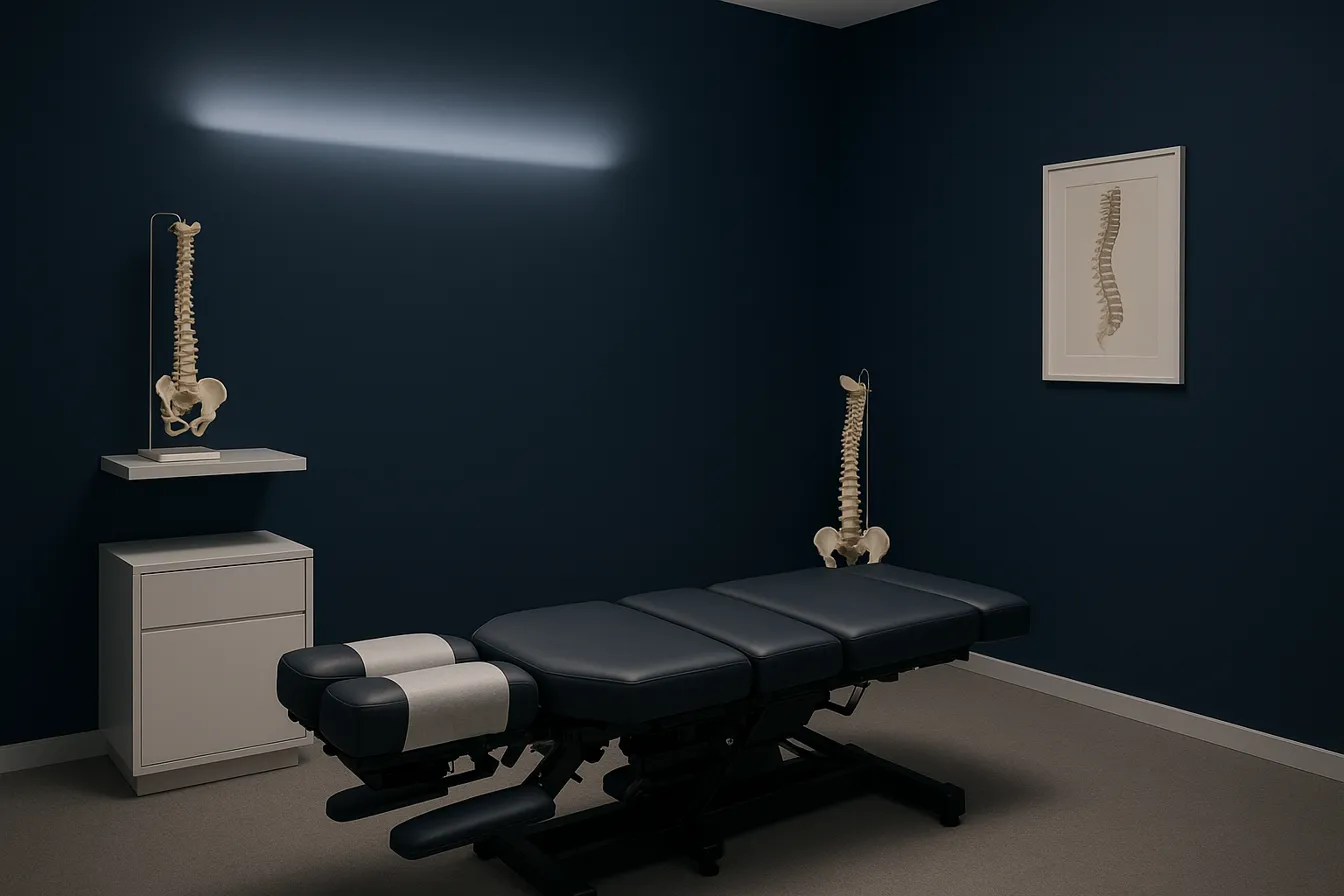
Real Patient Testimonials: Success Stories from Chiropractic Care

Understanding Spinal Decompression for Effective Sciatica Relief

What to Expect When Visiting a Chiropractor for the First Time
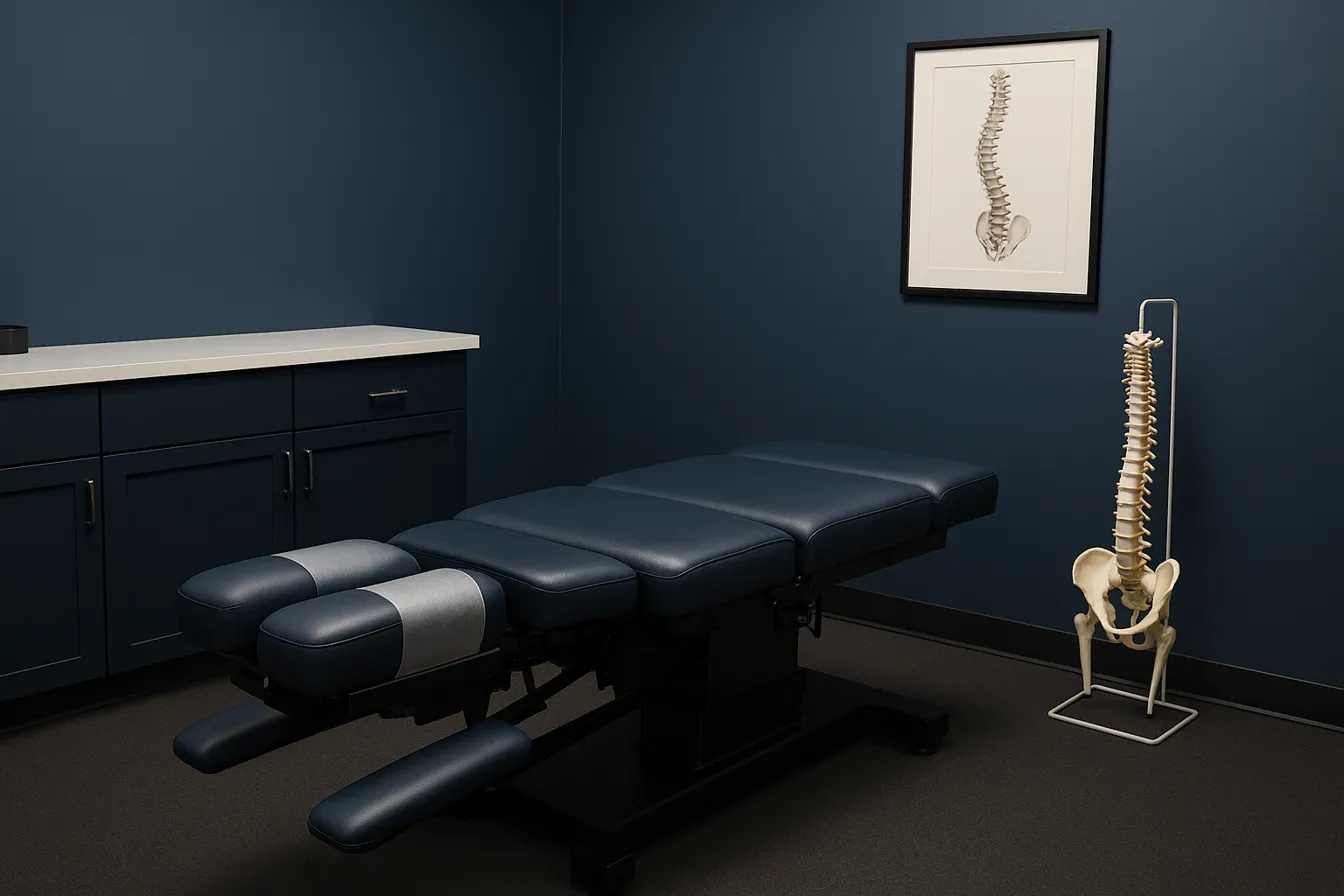
Benefits of Regular Chiropractic Adjustments for Back Pain Management

Patient Testimonials Highlighting the Benefits of Chiropractic Care

Corrective Exercise Routines Designed for Lasting Back Pain Relief

Lifestyle Recommendations for Sustaining a Healthy Spine

Nutritional Guidance to Support Spinal Function and Healing

Long-Term Corrective Exercises for Preventing Recurring Back Pain
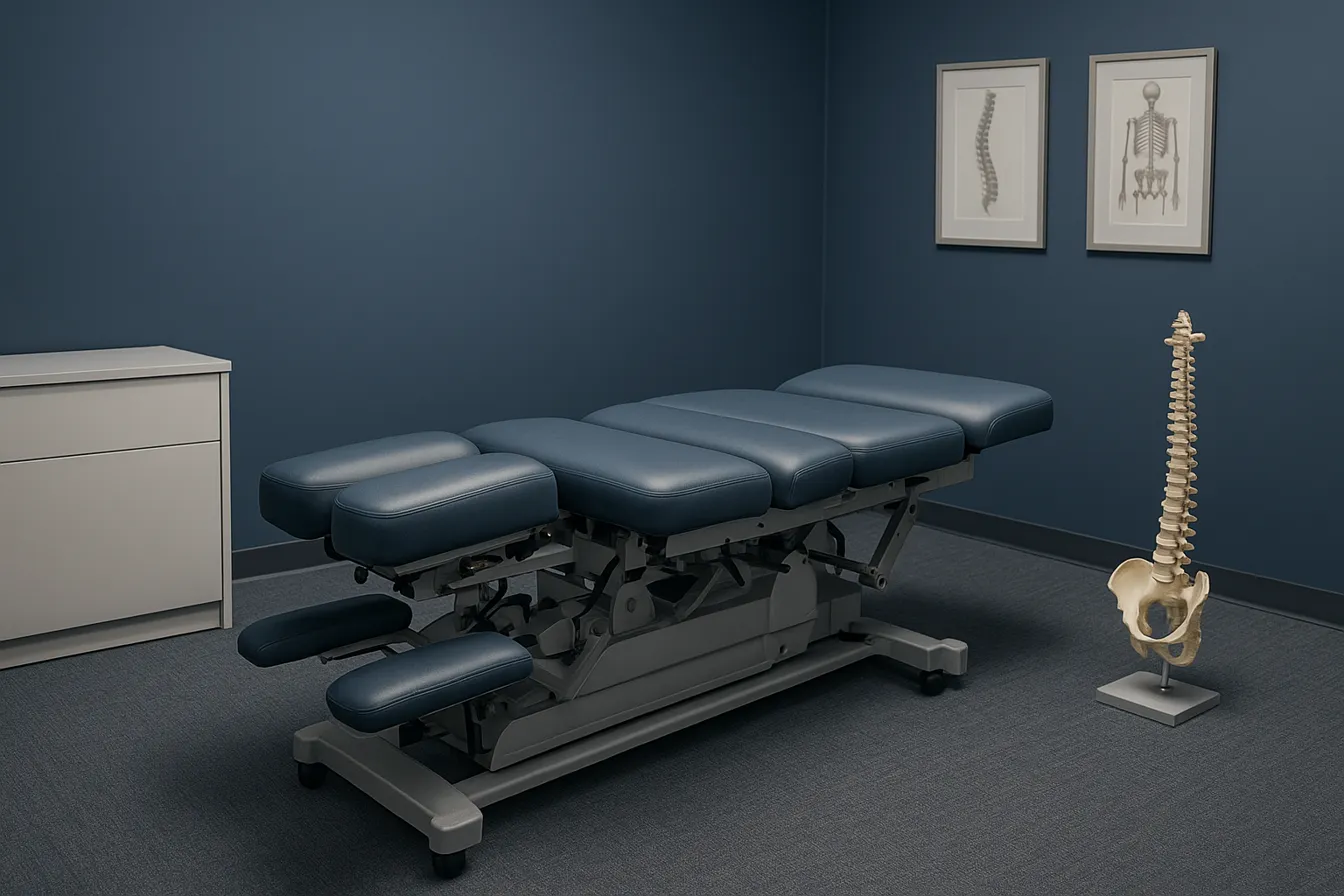
Spinal Decompression: What Sciatica Patients Should Know

Why Treating the Root Cause of Back Pain Is More Effective Than Symptom Relief

Nutritional Counseling Strategies for Spine Health Improvement

Top Benefits of Chiropractic Care for Chronic Back Pain Sufferers

Exploring Non-Surgical and Holistic Treatment Options for Spinal Conditions

Exploring Holistic and Non-Surgical Treatments for Back Pain Relief

Powerful Patient Stories: Chiropractic Care Transformations

Effective Spinal Decompression Techniques for Sciatica Sufferers

Holistic Alternatives to Surgery for Chronic Back and Sciatica Pain

5 Corrective Exercises to Achieve Long-Term Pain Relief

Effective Corrective Exercises to Combat Sciatica and Back Pain

How Spinal Decompression Therapy Alleviates Sciatica Pain Naturally

Lifestyle Changes to Maintain a Healthy Spine and Reduce Back Pain

8 Things to Expect at Your First Chiropractic Visit

Combining Physiotherapy with Chiropractic Care for Optimal Back Pain Management

Choosing the Right Chiropractor: Expectations for Your Initial Visit

7 Inspiring Patient Testimonials That Highlight Chiropractic Success

10 Reasons Why Addressing the Root Cause of Pain is Essential

Inspiring Chiropractic Patient Testimonials and Their Healing Journeys

9 Nutritional Counseling Tips for Enhancing Overall Wellness

Understanding the Importance of Root Cause Analysis in Pain Management

Addressing Pain at Its Source: The Importance of Root Cause Treatment

Lifestyle Advice for Back Pain Prevention and Spinal Care
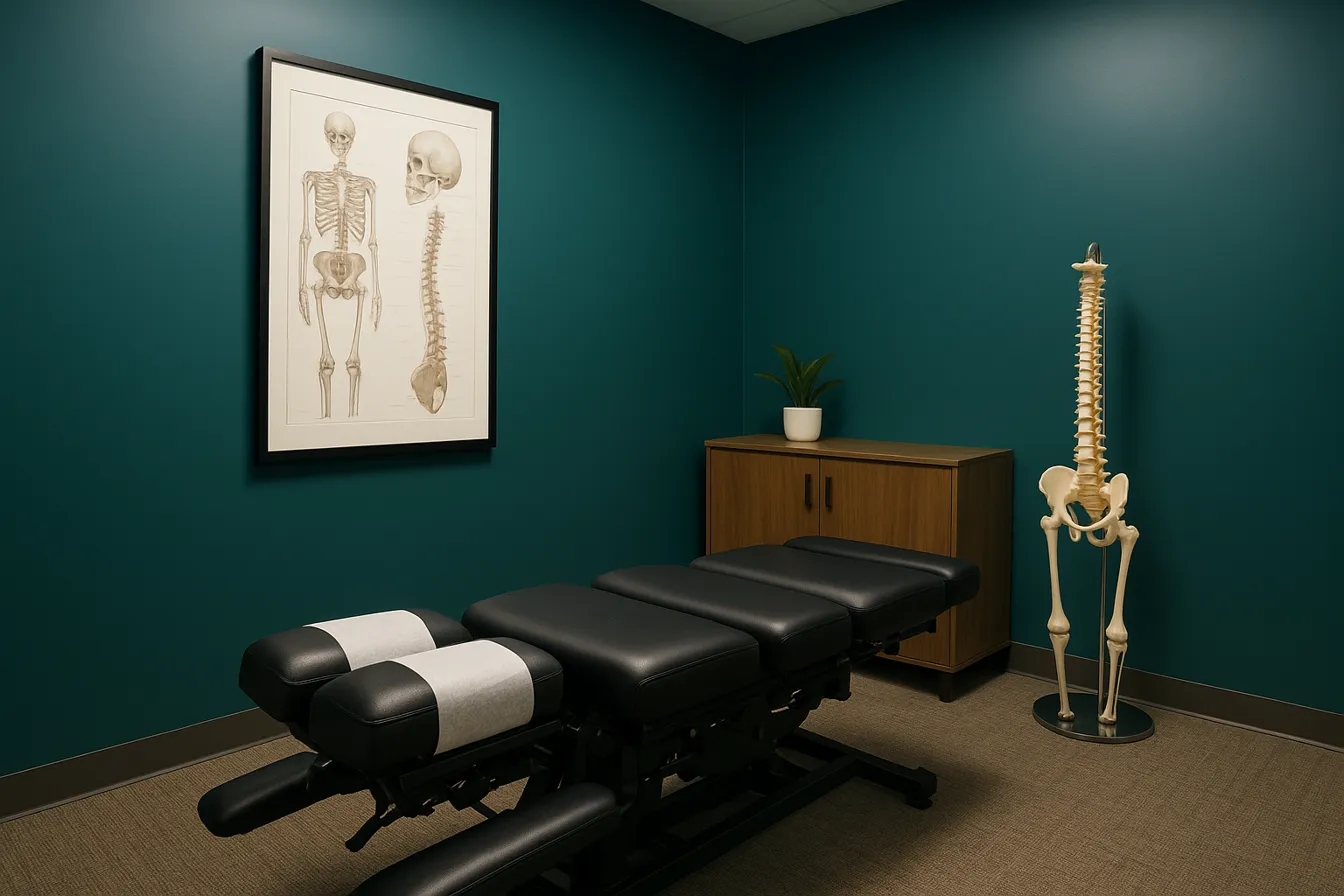
Combining Physiotherapy and Chiropractic for Enhanced Recovery
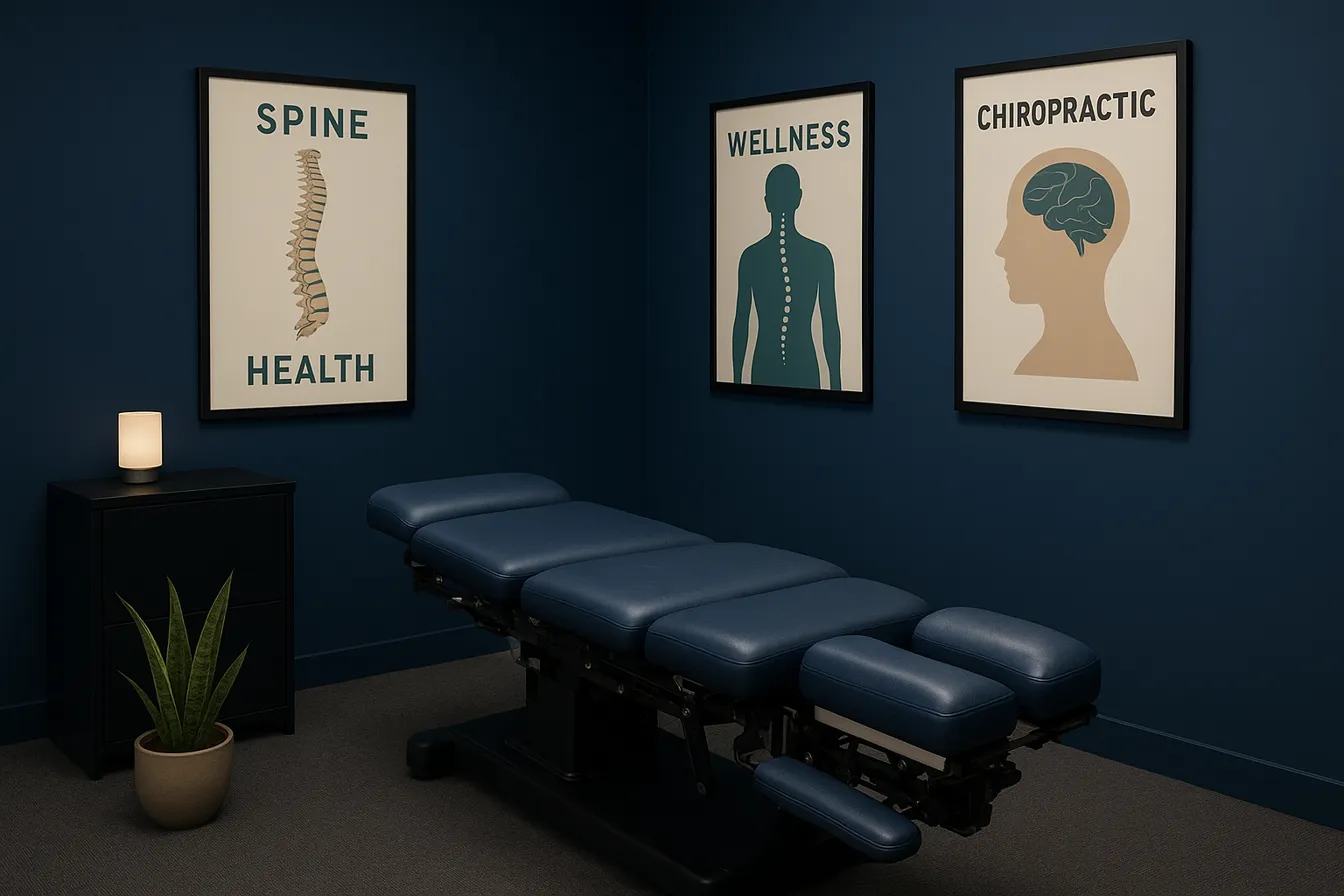
Preparing for Your First Chiropractor Appointment: What You Should Know

Corrective Exercises to Strengthen Your Back and Prevent Pain

How Treating the Root Cause Can Prevent Chronic Back Pain Recurrence
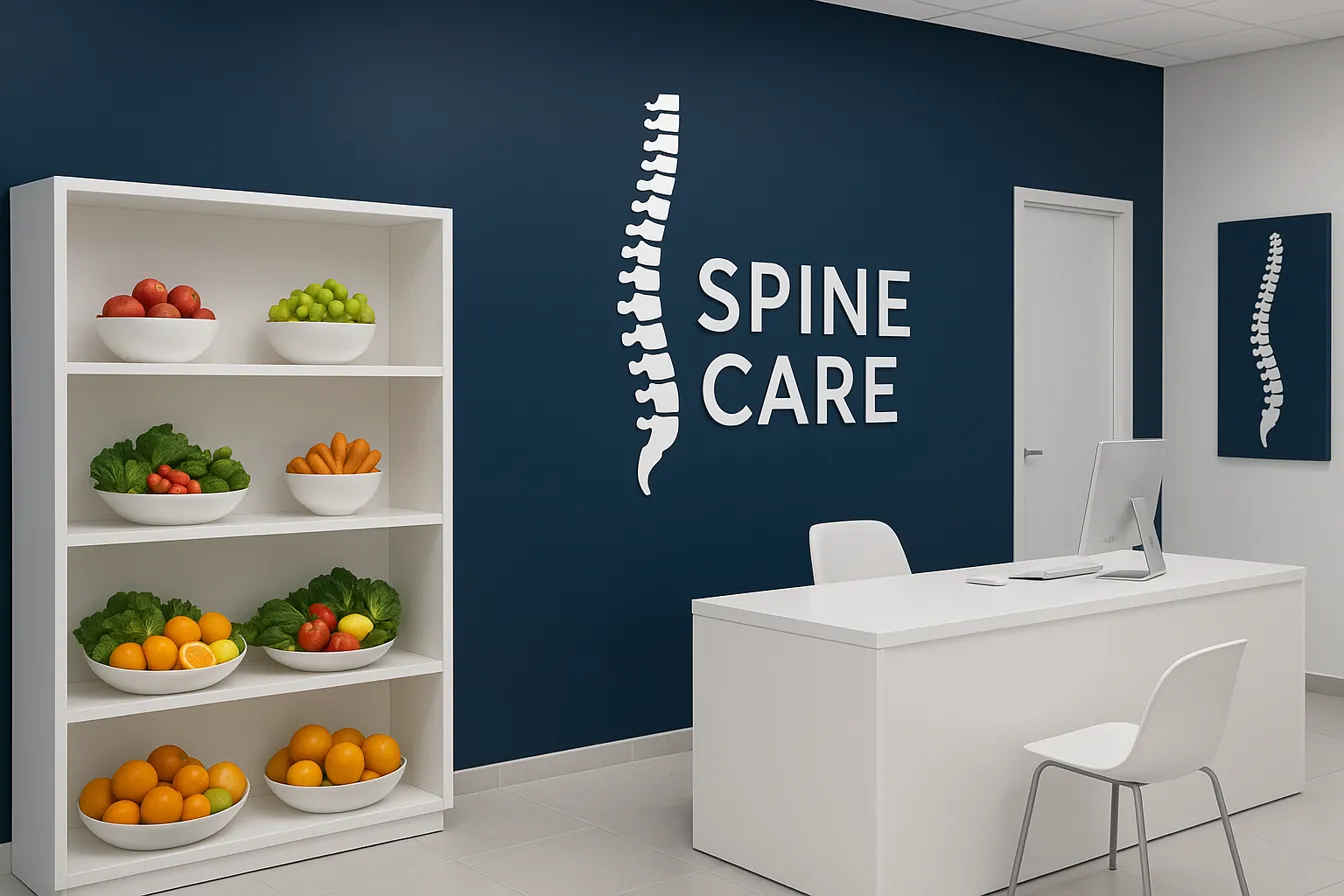
The Role of Nutrition in Supporting a Healthy Spine

Nutritional Counseling Tips to Enhance Spinal Health and Wellness

Practical Lifestyle Advice for Maintaining Spinal Alignment and Health

Chiropractic Care: Key Benefits for Managing and Preventing Back Pain

Corrective Exercises That Support Long-Term Relief from Sciatica

Chiropractic Methods That Provide Lasting Relief from Back Pain

Understanding Spinal Decompression and Its Benefits for Sciatica

Real Patient Testimonials: Success Stories in Chiropractic Care

Top Questions to Ask Your Chiropractor During Your Initial Visit

Physiotherapy's Role in Supporting Chiropractic Treatment Plans

The Role of Diet and Nutrition in Enhancing Wellness and Chiropractic Care

Inspiring Patient Testimonials Highlighting Chiropractic Success

Chiropractic Care: A Natural Solution for Back Pain Relief

Amazing Patient Success Stories in Chiropractic Wellness

Combining Physiotherapy and Chiropractic for Optimal Healing

Spinal Decompression Therapy: A Breakthrough for Sciatica Sufferers

5 Holistic Treatments That Complement Chiropractic Care

How Physiotherapy Supports and Enhances Chiropractic Treatment

Root Cause Versus Symptom Treatment: Making the Right Choice

7 Essential Things to Know Before Choosing Your Chiropractor

Why Addressing Root Causes of Pain Matters More Than Just Symptoms

Nutritional Counseling Strategies to Boost Your Overall Wellness

How Spinal Decompression Therapy Alleviates Sciatic Nerve Pain

Long-Term Pain Relief Through Targeted Corrective Exercises

10 Benefits of Integrating Physiotherapy with Chiropractic Treatments

Corrective Exercises That Help Prevent Recurring Pain

8 Corrective Exercises Proven for Lasting Pain Relief

Lifestyle Habits for Maintaining a Healthy Spine

What You Will Experience at Your Initial Chiropractic Visit

What Happens at Your First Visit to a Chiropractor?

Focusing on Root Cause Analysis for Effective Pain Relief

Tips for Lifestyle Changes to Support Spinal Health

Tips for Lifestyle Changes to Support Spinal Health

